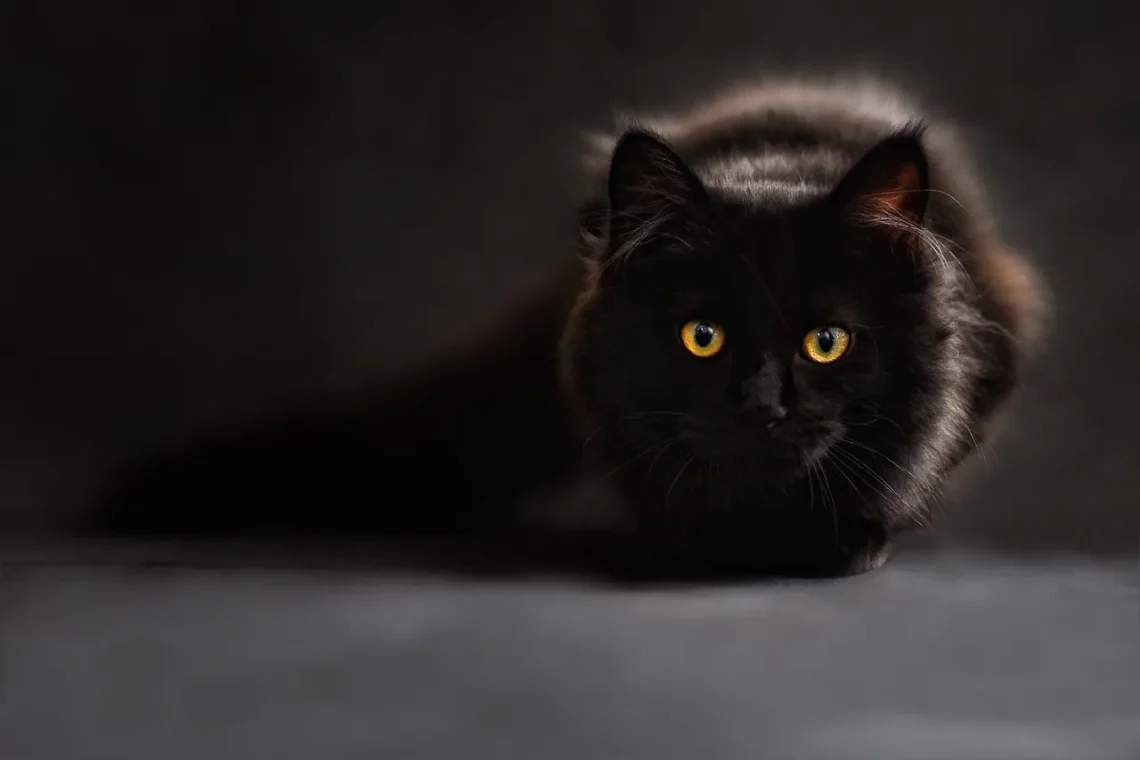
The Mysterious Life of a Cold Cat: Tips for Winter Care
As the temperatures drop and the days grow shorter, many pet owners find themselves wondering how to best care for their feline companions during the cold months. Cats are known for their mysterious behaviors, and winter can bring about unique challenges and concerns for their well-being. While some cats seem to thrive in cooler weather, others may struggle with the lower temperatures, particularly if they are outdoor cats or have specific health conditions.
Understanding the needs of your cat during winter is crucial, not only for their comfort but also for their health. The cold weather can affect their appetite, energy levels, and even their mood. It’s important to recognize the signs that your cat may be feeling cold or uncomfortable. Additionally, creating a cozy environment, ensuring proper nutrition, and providing adequate warmth can significantly enhance their winter experience.
In this article, we will delve into effective ways to keep your feline friend safe and comfortable throughout the winter months. From indoor adjustments to outdoor precautions, ensuring your cold cat is well cared for can make all the difference in their quality of life during this chilly season.
Creating a Cozy Indoor Environment
One of the most important aspects of winter care for your cat is ensuring that your home provides a warm and inviting space. Cats are naturally drawn to warmth, and they often seek out sunny spots or heated areas in the house. To enhance their indoor experience, consider the following tips.
First, provide plenty of comfortable resting spots. Soft beds placed in warm areas can give your cat a sense of security. Consider using thermal or heated pet beds, especially for older cats or those with health issues. Ensure that these beds are placed away from drafts and cold surfaces, as prolonged exposure to chilly air can lead to discomfort.
Additionally, consider the placement of your cat’s food and water bowls. Cats often prefer to eat in a warm environment, so placing their dishes in a cozy corner can encourage them to enjoy their meals. It’s also wise to monitor their water intake. In colder months, cats might drink less water, so providing fresh, lukewarm water can entice them to hydrate more frequently.
Moreover, playtime is essential, even in winter. Engage your cat with interactive toys and games that promote physical activity. Not only will this help keep them warm, but it will also prevent boredom and maintain their mental health. Try to schedule play sessions during the warmest parts of the day when sunlight streams through the windows, creating a more inviting atmosphere.
Lastly, consider using a humidifier to maintain moisture in the air. Winter air can be quite dry, which can lead to skin irritations for both you and your cat. A humidifier helps create a more comfortable environment, reducing the chance of dry skin and respiratory problems.
Outdoor Safety Precautions
If your cat enjoys spending time outdoors, winter can pose several risks that need to be addressed. Cold weather can lead to hypothermia and frostbite, particularly in those cats that are not acclimated to the chill. Therefore, taking precautions is vital for their safety.
First, ensure your cat has access to shelter if they are allowed outside. A well-insulated cat house or a designated area with blankets can provide refuge from the cold. Make sure this shelter is elevated off the ground to prevent moisture from seeping in and is protected from wind and snow.
Also, keep an eye on the duration of their outdoor adventures. Short, supervised excursions may be best during especially cold days. If your cat appears to be shivering or reluctant to go outside, it may be time to bring them back indoors.
Another consideration is the dangers posed by antifreeze and other chemicals. Many outdoor cats are curious and may be drawn to puddles or areas where these substances are present. Ensure that your driveway and garage are free from spills, and educate yourself on the signs of poisoning should you suspect your cat has ingested something harmful.
Additionally, be cautious with the use of snow and ice. Cats can slip and injure themselves, so try to keep their play areas clear. If you live in a particularly snowy region, consider using pet-friendly ice melts to keep walkways safe and accessible for your feline friend.
Lastly, if your cat is not accustomed to cold weather, consider limiting their outdoor time altogether. Cats can adapt to indoor living, and keeping them inside will protect them from the harsh elements, ensuring their safety and well-being.
Nutrition and Health Considerations
During the winter months, your cat’s nutritional needs may change. Cold weather can increase their energy expenditure as they work harder to maintain their body temperature. Consequently, it’s essential to provide adequate nutrition to support their health.
Start by evaluating your cat’s diet. Consult with your veterinarian to determine if your cat requires a higher calorie intake during winter. This may involve switching to a premium cat food that provides the necessary nutrients and energy.
Additionally, consider the benefits of warming their food. Cats often prefer their meals at a slightly warmer temperature, especially in colder months. Heating their food slightly can make it more appealing and encourage them to eat more enthusiastically.
Hydration is equally crucial during the winter. Cats are prone to urinary issues, particularly in dry winter air. Ensure your cat has access to fresh, clean water at all times. You might also consider a water fountain, as many cats enjoy drinking running water, which can encourage them to stay hydrated.
Regular vet check-ups are essential during this time, especially if your cat is older or has any pre-existing health conditions. Cold weather can exacerbate certain ailments, so monitoring their health and behavior is vital. If you notice any signs of lethargy, changes in appetite, or unusual behaviors, consult your veterinarian promptly.
Lastly, keep an eye on your cat’s coat. Regular grooming helps reduce shedding and keeps their fur in good condition, providing better insulation against the cold. A healthy coat can significantly enhance your cat’s comfort during winter.
Recognizing Signs of Cold Stress
Understanding how to recognize the signs that your cat is feeling cold or stressed is an essential part of winter care. Cats can be quite adept at hiding their discomfort, but there are several behaviors to watch for.
One of the most common signs is shivering. If you notice your cat trembling, it’s a clear indication that they are feeling chilly. Cats may also seek out warmth by curling up tightly or burrowing into blankets. If you observe this behavior, consider providing them with additional warmth, such as a heated blanket or a cozy bed.
Changes in behavior can also signal that your cat is uncomfortable. If they are more withdrawn than usual, refusing to play, or spending excessive time hiding, it may be a sign that they are feeling the effects of the cold. Pay attention to their eating habits as well; a decrease in appetite can indicate stress or discomfort.
Another sign to watch for is excessive grooming. Some cats may over-groom in an attempt to warm themselves, which can lead to skin irritations. Keep an eye on their coat and skin health, and consider consulting your veterinarian if you notice any unusual grooming behaviors.
Finally, if your cat is an outdoor explorer, monitor their body condition. If they appear to be losing weight or lack energy, it may be time to reevaluate their diet and outdoor access.
By staying vigilant and responsive to these signs, you can help ensure that your feline friend remains comfortable and healthy throughout the winter months.
In conclusion, winter can present unique challenges for cat owners, but with proper care, you can keep your feline friend safe and comfortable. Remember that each cat is unique, and what works for one may not work for another. Always observe your pet’s behavior and adjust your care accordingly, and don’t hesitate to seek professional advice when necessary.
**Disclaimer: This article is not intended as medical advice. For any health concerns regarding your cat, please consult with a veterinarian.**




